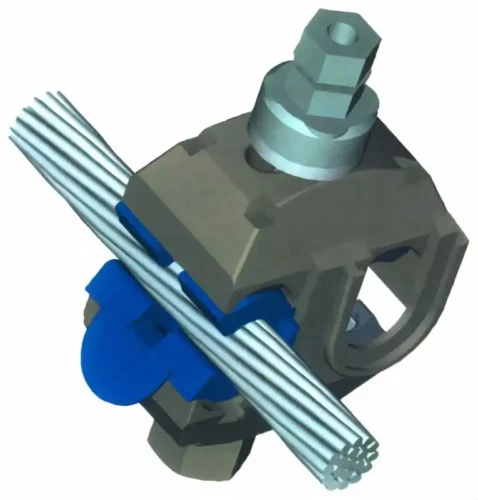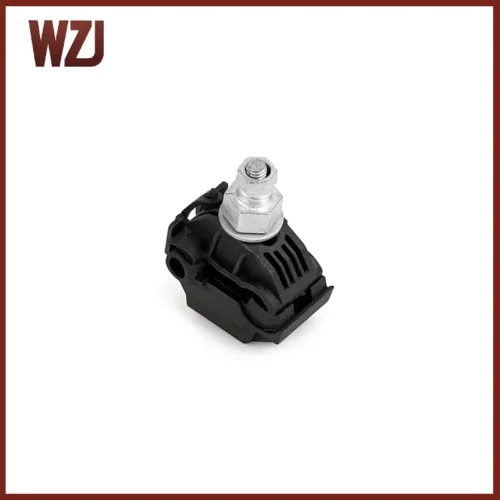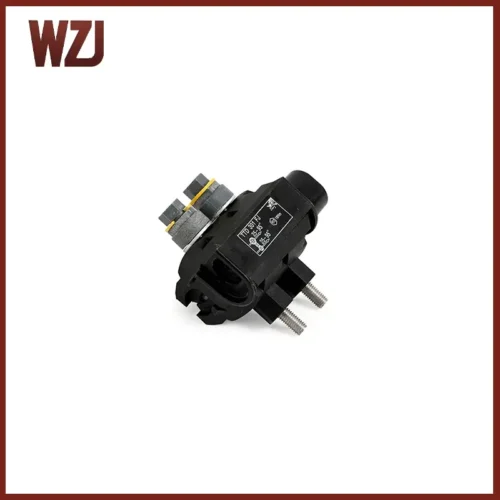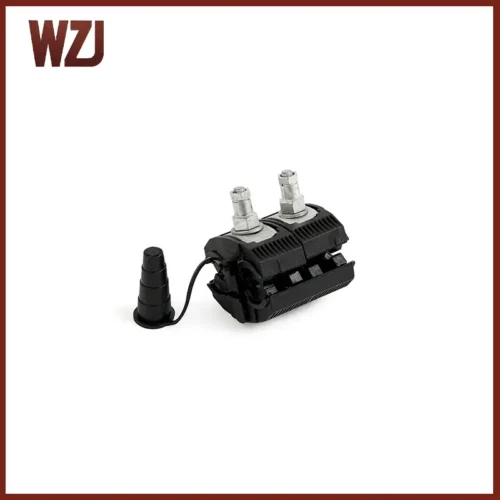What is an Insulation Piercing Connector? Professional Electrical Accessories Guide
What is an Insulation Piercing Connector? If you’ve ever delved into the intricacies of electrical systems, this question might have crossed your mind. Insulation piercing connectors (IPCs) are pivotal components in electrical installations, known for their ability to simplify and secure electrical connections. But what exactly are these connectors, and why are they so important in today’s electrical systems?

What is an Insulated Piercing Connector?
An insulated piercing connector is a type of electrical connector that is used to pierce the insulation of electrical wires to make a safe and reliable electrical connection. Insulation piercing connectors are typically used in power distribution and transmission systems as well as in telecommunications and automotive applications. They are designed to provide a strong and durable connection while maintaining the integrity of the insulation around the wire
How Insulation Piercing Connectors Work
The fundamental principle behind insulation piercing connectors is relatively straightforward. The connector is equipped with sharp metal teeth that pierce through the insulation of the wire, making direct contact with the conductor. This ensures a secure and reliable electrical connection without the need for stripping the insulation.
What are the components of an insulated drilled connector?
Insulation Piercing Connectors (IPCs) typically consist of multiple components that work in concert to create a reliable and secure electrical connection. The components of a WZJ Insulation Tap Connector include.
Shear head – Nut – Stainless steel washer – Upper body – Knife teeth – Watertight seal – Lower body – Stainless steel bolt – End cap.
These components work together to create a strong and reliable electrical connection without stripping the wire insulation, making IPCs especially useful in applications where the integrity of the insulation must be maintained.
Where are Insulation Piercing Connectors used?
Insulation Piercing Connectors (IPC) are used in a variety of electrical applications, including.
1. Power Distribution: IPCs are commonly used to connect and splice wires in power distribution systems. They are used to connect overhead power lines, underground cables, and transformers.
2. Telecommunications: IPCs are used for splicing and connecting telephone lines, fiber optic cables, and coaxial cables in telecommunications systems. They are usually used in telephone distribution boxes and junction boxes.
3. Street Lighting: IPC is used for connecting and splicing wires in street lighting systems. They are usually used in street light poles and junction boxes.
4. Automotive: IPC is used in the automotive industry to connect and splice wires in vehicles. They are typically used for wiring harnesses, battery connections, and electrical sensors.
5. Industrial: IPC is used in industrial applications to connect and splice wires in machines and equipment. They are typically used in motor control centers, switchgear, and control panels.
What are the advantages of using Insulation Piercing Connectors?
The use of Insulation Piercing Connectors (IPCs) in electrical applications offers several advantages, including.
- 1. Time-saving: IPCs eliminate the need to strip wire insulation, thus saving installation and maintenance time.
- 2. Reliable Connections: IPC provides safe and reliable electrical connections without the risk of wire damage or loose connections.
- 3. Waterproof: WZJ IPCs are designed to provide a watertight seal, making them suitable for both outdoor and underground applications.
- 4. Versatility: IPC is available in a wide range of wire sizes and types, providing flexibility for a variety of electrical installations.
- 5. Reduced Risk of Injury: Due to its insulation-piercing design, the IPC minimizes the risk of electric shock and injury during installation.
- 6. Space saving: The IPC is compact and can be used in tight spaces, making it suitable for applications where connection space is limited.
- 7. Cost-effective: By simplifying the installation process and minimizing the need for additional components, IPCs can reduce material and labor costs 8. Durable: Many IPCs are designed to withstand harsh environmental conditions, ensuring long-term reliability in outdoor and industrial environments.
How do I install an Insulation Piercing Connector?
Key Installation Steps.
- Insert the branch cable into the connector as shown.
- Insert the main cable. Cover the cable end cap
- Gradually tighten the nut until it shears off.
How do I test the performance of an IPC?
Type testing of Insulation Puncture Connectors (IPCs) is performed to verify the connector’s performance, safety, and compliance with relevant standards and specifications. These tests are typically performed on representative samples of IPCs and may include the following.
- Visual inspection and verification testing of dimensions and materials
- Permanent marking test
- Water intermediate voltage test
- Corrosion aging test (salt spray chamber test)
- Climatic aging test (UV radiation test)
- Main body mechanical damage test
- Branch cable pull-out test
- Connector bolt tightening test
- Shear head function test
- Low-temperature impact test
- Low-temperature assembly test
- Complete the electrical aging test (1000 cycles) and short-circuit test.
What is the NFC 33-020 standard for Insulation Piercing Connectors?
The NEC 33-020 standard is a French standard that defines the requirements for Insulation Piercing Connectors (IPC) used in low-voltage electrical and pneumatic equipment. The standard covers the design, materials, testing, and performance of IPCs, as well as the requirements for installation and use.
The NFC-33020 standard defines the characteristics of IPCs, including their size, shape, and depth of penetration, as well as their electrical and mechanical characteristics. It also specifies the tests that IPCs must undergo to ensure compliance with the standard, including resistance, mechanical strength, and environmental durability tests.
The standard also provides guidelines for the installation and use of IPCs, including recommended torque values for fasteners, minimum and maximum wire sizes that can be used with the connector, and the maximum current-carrying capacity of the connector.
What are the routine tests for Insulation Piercing Connectors?
Before an Insulation Piercing Connector (IPC) can be put into service, routine testing is required to ensure its quality, safety, and performance. These tests are usually performed during the manufacturing process and may include the following.
- Appearance inspection
- Permanent marking test
- Water intermediate electrical voltage test
- Cutting head function test – II
Common Misconceptions About Insulation Piercing Connectors
Myth: They Damage Conductors
A common misconception is that insulation piercing connectors damage the conductors they connect. However, when used correctly, these connectors do not harm the conductor and provide a secure and reliable connection.
Myth: They Are Not Reliable
Another myth is that insulation piercing connectors are not reliable. In reality, they are designed to provide a robust and durable connection, making them a reliable choice for various applications.
Myth: They Are Difficult to Install
Some people believe that insulation piercing connectors are difficult to install. On the contrary, these connectors are known for their ease of installation, requiring minimal effort and time compared to traditional connectors.



What are the advantages of WZJ insulated taps?
- Advantages in terms of cable size
- Suitable for AL and CU cables
- Stainless steel bolts and washers, rust and corrosion-resistant
- Rubber cap for durability
- UV-resistant polymer body
Why WZJ is one of the best manufacturers of insulation-piercing connectors and why buy Insulation Piercing Connectors from WZJ?
WZJ was established in 2004 and has been manufacturing Insulated Piercing Connectors since 2015 and has experience in many international projects.
Here are some of the factors that make WZJ one of the best manufacturers and why you should buy IPCs from WZJ.
- Product Quality and Reliability: WZJ produces high-quality Insulation Piercing Connectors that are reliable and durable.
- Compliance and Certification: WZJ Energy ensures that the Insulation Piercing Connectors comply with relevant industry standards such as NFC 33-020, and EN-50483, giving customers confidence in the quality and safety of their products.
- Product Range: WZJ Energy offers a wide range of Insulated Puncture Connectors for 1kv power lines to meet various application requirements.
- Research and Development: WZJ Energy invests in research and development to continually improve the design, performance, and reliability of its Insulated Puncture Connectors to ensure they remain competitive in the marketplace.
- Customer Support: WZJ Energy offers strong customer support including technical assistance, flexible OEM with sticker, and after-sales service, which is important to customers looking for reliable application solutions.
Contact us
FAQs
What are the primary benefits of using insulation-piercing connectors?
The primary benefits of using insulation piercing connectors include ease of installation, reliability, durability, and cost-effectiveness. These connectors simplify the connection process and provide a secure and stable connection without the need for stripping insulation from wires.
Can insulation piercing connectors be used for high-voltage applications?
Yes, insulation piercing connectors are available in various types, including those designed for high-voltage applications. These connectors are built to handle significant electrical loads while maintaining safety and efficiency.
How do I know if my insulation piercing connector is installed correctly?
To ensure that your insulation piercing connector is installed correctly, follow the manufacturer’s installation instructions carefully. Check the connection to ensure it is secure and free from any loose wires. Regular inspections can also help identify any issues.
Are there any risks associated with using insulation-piercing connectors?
When used correctly, insulation piercing connectors are safe and reliable. However, improper installation or using connectors that are not suitable for the specific application can pose risks. Always follow safety guidelines and choose the right connector for your needs.
What should I consider when purchasing insulation piercing connectors?
When purchasing insulation piercing connectors, consider factors such as voltage requirements, environmental conditions, and compatibility with existing systems. Ensure that the connector is rated for the specific voltage level and designed to withstand the environmental conditions in which it will be used.
Website: https://www.wzjelec.com/
Product: https://wzjelec.com/product
Email: rose@sunjelec.comAuther: Leb






